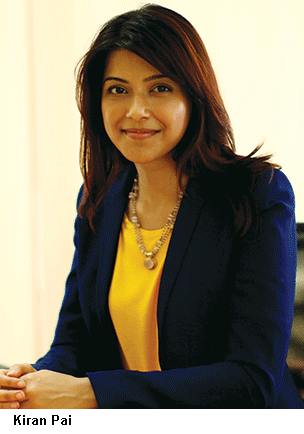 Children born after the year 1996 don’t know of a time before smartphones and the Internet. The ubiquity of smartphones is so apparent with this generation of children (sometimes called Generation Z, iGen or post-millennials) that they consider owning a phone to be a pre-adolescent rite of passage and social norm.
Children born after the year 1996 don’t know of a time before smartphones and the Internet. The ubiquity of smartphones is so apparent with this generation of children (sometimes called Generation Z, iGen or post-millennials) that they consider owning a phone to be a pre-adolescent rite of passage and social norm.
The advent of the Internet, and the subsequent emergence of social media, has radically changed what it means to learn, socialise and work. Post-millennials are distinctly different from millennials in that they not only use social media as a global platform for self-expression but also actively construct their learning experiences and social connections, in the form of notifications. Therefore, for the purpose of this essay, we’ll describe them as the Notification Generation or NGens for short. Their careful calibration of smartphone notifications defines, at least metaphorically, how the new generation filters, selects and consumes information. This essay explores the behaviour, attitudes and motivations of this elusive yet powerful group of young people coming of age in the post-digital era.
Members of this new generation are still young children, adolescents and young adults, the oldest of them perhaps 21 years old. Both millennials and NGens build their world views on social media and the Internet. However, millennials sometimes view social media as both an obsession and intrusion that necessitates time away from their phones in the form of a ‘digital detox’. To NGens, smartphones and social media are tools of everyday life and an indispensable source of information for whom a full-blown digital detox is likely to be anathema.
A report of the Consumer Mobility survey (2017) indicates that NGens would give up TV and gaming time to remain connected to their smartphones. To them, digital boundaries (such as no phone at the dinner table or no texting while driving) are much more reasonable. Just like their millennial parents, NGens are equal parts aware of and wary of their dependence on technology—meaning their online lives are both spontaneous and carefully curated, particularly in the form of push notifications. Perhaps the most notorious trait that NGens demonstrate is their short attention span of around eight seconds — which befuddles parents and teachers alike. However, this development is attributed largely to information overload which has resulted in NGens’ habit of quickly filtering out irrelevant information.
In terms of career aspirations, NGens want dream jobs, but they are determined to create them. Entrepreneurship and startups will become ubiquitous when NGens grow into adulthood. Additionally, research indicates that NGens are inclined to create and connect with content. They refuse to learn in passive educational environments and choose to either resist or disengage. The catalyst of this change is technology and its profound implications for how young people learn, socialise and work.
While millennials have been educated in traditional classrooms like Generation X and Baby Boomers before them, NGens are currently coming of age during an era of a major disruption in education. This disruption affects three major domains of traditional formal education: accessibility, instructional content and flexibility. All three domains were literally flipped on their heads by Bill Gates’ education poster child Khan Academy, founded by US-based digital educator Salman Khan in 2006. In fact, Khan Academy became synonymous with ‘flipped classroom’ pedagogy as it not only made education accessible to more young people all over the world in flexible learning environments, but also enabled customisation of instructional content through Youtube videos.
The role of the millennial educator changed as well. As the Khan Academy has demonstrated, teachers are now expected to serve as professional coaches and content architects to help students progress at their own pace and speed, impossible under most traditional models. Of course, it was established early on that online learning needs to be integrated with real face time so teachers could make a more impactful influence on students. This is primarily because NGens need in-person social interfaces as well as technological tools to learn meaningfully.
However, whether online or offline, teachers do not (and should not) attempt to teach NGens in the traditional ‘sage on the stage’ lecture format, but rather facilitate use of educational technology and peer learning to become a ‘guide on the side’.
What is wonderful to note is that, as educators and parents, millennials are raising their NGen children quite differently from how they were raised, from the intellectual, social, moral and ethical standpoints. Millennials strive to stay informed as much as possible. In that effort, they acknowledge that NGen children are growing up in an era of digital technology and that their careful upbringing will have profound implications on how NGens will shape their world of the future.
(Kiran Pai is director of Vidyashilp Academy and Vidyasagar preschools, Bangalore)